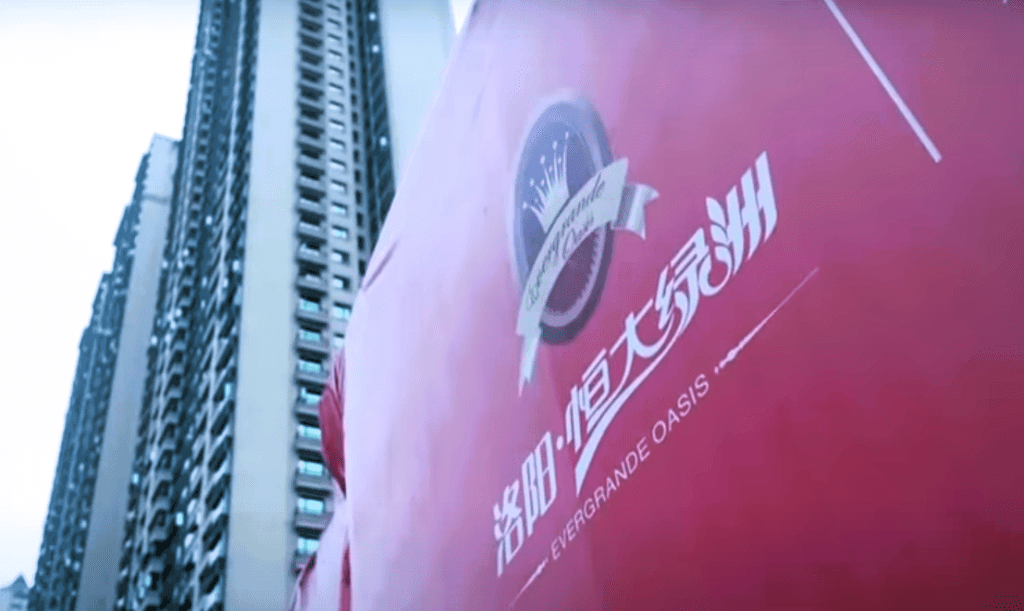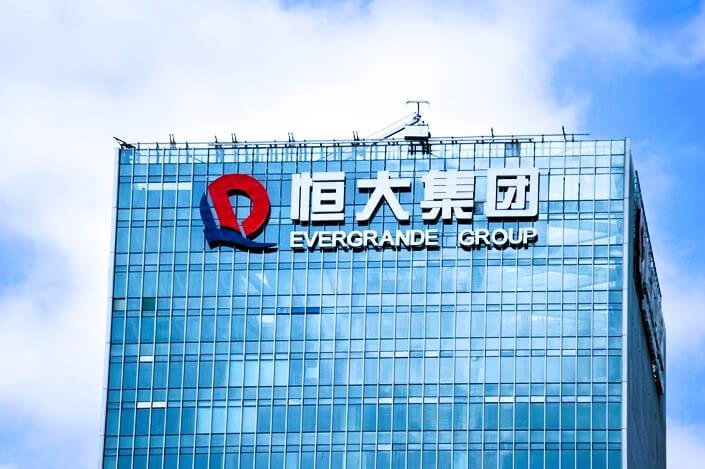In a significant development that has sent shockwaves through the global financial markets, the Chinese property behemoth Evergrande has formally filed for Chapter 15 bankruptcy protection. This move, undertaken in New York, has far-reaching ramifications not only for Evergrande itself but also for China’s economic trajectory and the sluggish real estate sector. Let’s delve into the intricacies of this unprecedented event and explore its potential consequences.
Table of Contents
Seeking Shelter Under Chapter 15: A Multinational Approach

Evergrande’s decision to invoke Chapter 15 of the U.S. bankruptcy code has spurred widespread concern regarding the potential fallout. Chapter 15, tailored for insolvency cases spanning multiple countries, allows Evergrande the opportunity to restructure its overwhelming debt while safeguarding its operations. This filing is accompanied by references to upcoming discussions slated for Hong Kong and the Cayman Islands. Creditors are poised to cast their votes on the proposed restructuring later this month.
Clarification Amidst Uncertainty
In response to mounting speculation, Evergrande issued a clarifying statement on Friday afternoon. It affirmed its commitment to advancing offshore debt restructuring, disavowing any formal bankruptcy petition. Notably, the Chapter 15 filing is deemed a “routine” facet of offshore restructuring, as articulated in its communication to the Hong Kong Stock Exchange. This strategic maneuver shields Evergrande from immediate legal and debt-related pressures, allowing for a more calculated recovery process.
A Prudent Defensive Maneuver
Amidst assertions of “normal procedure,” industry experts recognize the deeper implications of Evergrande’s Chapter 15 petition. Janz Chiang, a respected senior analyst at Trivium China, points out that this move underscores Evergrande’s apprehensions about the complexity posed by various legal actions across jurisdictions. By invoking Chapter 15 bankruptcy protection, the company seeks to insulate itself from the potentially tumultuous consequences of these lawsuits, ensuring a smoother path to recovery.
Evergrande’s Journey: From Ascent to Struggle
Founded in 1996 by Xu Jiayin, Evergrande surged to prominence on the crest of China’s housing boom. Employing a “borrow-to-build” model, the company amassed substantial debt while capitalizing on the flourishing real estate market. At its zenith, Evergrande boasted a workforce of 200,000 and a staggering portfolio of over 1,300 projects spanning more than 280 cities.
The Looming Crisis: Debt, Defaults, and Government Intervention
As the weight of $300 billion in liabilities mounted, Evergrande’s financial troubles reached a tipping point in 2021 with a series of defaults. This sparked a domino effect, with other construction firms experiencing similar setbacks. The Chinese government’s calculated approach to Evergrande’s distress has been likened to a “controlled demolition,” allowing the company to navigate a controlled descent. This measured intervention aims to avert systemic shocks while orchestrating a gradual resolution.
Unveiling Losses and Economic Consequences
Revealing a stark financial reality, Evergrande disclosed staggering losses of $81 billion spanning 2021 and 2022. The implications reverberate across China’s real estate landscape, where defaults have plagued companies contributing to 40 percent of the nation’s home sales. Unfinished properties and unpaid suppliers underscore the severity of the crisis, while the real estate sector’s role as a quarter of China’s economic growth remains undeniable. Notably, property investment witnessed a disconcerting 7.9 percent decline in the initial half of 2023.
Ripple Effects: A Fractured Industry
Country Garden, another prominent Chinese developer, recently stumbled as it missed payments on its substantial debt. This setback has further jolted homebuyers in the world’s second-largest economy, adding to the already mounting concerns surrounding the real estate sector. The ongoing upheaval serves as a cautionary tale, highlighting the interplay between economic intricacies and market sentiment.
China’s Property Market: Navigating Turbulence Amidst Economic Whispers

Discover the Unraveling Landscape of China’s Property Sector and the Conundrum of Beijing’s Response
As China’s economic prowess emerges from a three-year period of “zero covid” policies, the narrative has shifted from a resounding roar of triumph to a subdued whimper. While global anticipation surged for an economic resurgence, reality paints a different picture for the nation’s gargantuan economy.
A Modest Growth Trajectory
Analysts predict that this year’s growth may barely touch the government’s 5 percent target, a far cry from the robust 8 percent witnessed a mere decade ago. This subdued trajectory reflects the intricate interplay of factors that have shaped China’s economic landscape in recent times.
Diminished Key Indicators
Exports, investment, factory output, and retail sales have all witnessed a noticeable deceleration, culminating in a landscape where even consumer spending exhibits frailty. While the world grapples with a cost of living crisis, China charts a unique course, with prices actually declining. This divergence in economic trends has cast a spotlight on China’s resilience and adaptability in the face of shifting global dynamics.
Unemployment Woes and Property Pangs
The specter of unemployment looms large, with the youth unemployment rate veiled in silence by the government’s decision to halt reporting. However, the crux of the issue lies in the property sector. Responsible for a substantial quarter of economic activity and a significant two-thirds of household wealth, this sector is now grappling with an unprecedented crisis.
Evergrande’s Echo and Industry Ripple
The magnitude of the crisis became starkly apparent when Evergrande Group, once a prominent property developer, sought bankruptcy protection in New York. This watershed moment revealed the fragility lurking beneath the surface of China’s property landscape. The tremors reverberated further as Country Garden, another major real estate player, faced its own financial precipice, owing a staggering $200 billion. A slew of other developers also stands on the precipice of insolvency.
Beijing’s Reluctance: The Contagion Conundrum
Despite fervent calls both domestically and internationally for resolute action, Beijing seems hesitant to take drastic measures to stabilize the property market. The implications of this hesitation ripple not only through China’s domestic economy but also across the global stage. The specter of contagion looms large, underscoring the intricate connections that bind economies in an increasingly interconnected world.
A Patience-Painted Landscape
China’s paramount leader, Xi Jinping, unveiled a cautious approach in a speech delivered in February. The leader’s call for “historic patience” and a measured, incremental progression resonates with the ongoing economic turbulence. This approach acknowledges the multifaceted challenges at play and the need for strategic, calculated steps to safeguard stability.
China’s Struggle with Youth Unemployment: A Crisis Beneath the Surface
Unveiling China’s Complex Battle with Youth Unemployment and the Implications for Its Economy
Amidst the intricate fabric of China’s economic landscape, a vexing issue looms large: youth unemployment. While this challenge has been brewing beneath the surface, recent developments have cast a spotlight on the government’s approach. Delve into the depths of this crisis and its potential impact on the world’s second-largest economy.
Narrowing the Lens: Concealing Unemployment
China’s strategy of not reporting youth unemployment appears to be a short-term solution with long-term repercussions. By masking the severity of this issue, the government inadvertently undermines trust and transparency in economic reporting.
Fragmented Solutions: Glimmers of Action
In a bid to stimulate demand and curb the slowdown, Beijing has implemented cautious measures, including interest rate adjustments and easing property ownership. However, these incremental steps might not suffice to address the multifaceted nature of the challenge.
Economic Confidence: A Precious Commodity
The crisis has dealt a severe blow to consumer confidence, exacerbating an already fragile economic ecosystem. At a juncture where China requires increased spending to avert a slowdown, eroded confidence could hinder the necessary revival.
Developer Defaults: A Harbinger of Doom
As property developers grapple with financial turmoil, concerns about defaults are at the forefront. The Evergrande debacle of 2021 and the impending default of Country Garden illustrate the precarious state of the real estate sector, casting a shadow of uncertainty over the economy’s trajectory.
The Beijing Dilemma: Urgent Interventions?
Calls for substantial interventions to stabilize the property market and restore faith remain unanswered. Despite the urgency conveyed by voices both domestic and international, Beijing hesitates, risking the potential contagion effect that could reverberate across the global economy.
Economic Landscape: Delicate Timing
Julian Evans-Pritchard, a prominent China analyst, underscores the gravity of the situation. As the economy grapples with its weakest point in years, even a minor setback could exacerbate the existing turmoil. This delicate timing mandates swift and strategic decision-making.
Root Causes: Real Estate Complexities
China’s real estate crisis is not an overnight development, but a culmination of years of intricate dynamics. The culture of prepaying for homes before their construction added fragility to the system, perpetuating a “Ponzi-type element.”
Rising Uncertainty: Property and Debt Nexus
The interconnection between the property sector and local governments’ debts has created a precarious synergy. The potential decline in home sales could trigger a disaster for debt-burdened local governments that rely on land auctions for revenue.
A Global Echo: Economic Ripples
The aftershocks of China’s property crisis could extend beyond its borders. The interconnectedness of the global economy means that a Chinese economic downturn could potentially trigger ripple effects worldwide.
Navigating a Complex Landscape
China’s resilience will be tested in the coming days, as it grapples with recalibrating its economic trajectory. The confluence of various challenges — youth unemployment, property defaults, and a cautious Beijing — necessitates a multifaceted response.
In conclusion, China’s record youth unemployment, albeit unreported, poses a formidable challenge to its economic stability. The dilemma is complex, requiring strategic interventions and concerted efforts to restore consumer confidence, stabilize the property sector, and ensure sustained growth. As the global economy watches China’s course of action, the nation’s decisions could echo far beyond its borders, influencing economic landscapes worldwide.
FAQs
Q: What is Chapter 15 bankruptcy protection?
A: Chapter 15 of the U.S. bankruptcy code deals with insolvency cases involving multiple countries, allowing companies to restructure debt while gaining protection from creditors.
Q: Why did Evergrande choose Chapter 15 protection?
A: Evergrande’s decision reflects its concern that managing its crisis could be complicated by various lawsuits in different jurisdictions, making Chapter 15 protection a strategic move.
Q: How might Evergrande’s bankruptcy protection affect China’s economy?
A: The move could exacerbate China’s slow economic growth and further impact the already sluggish real estate sector.
Q: What are the implications for the real estate sector?
A: Evergrande’s financial struggles might lead to reduced investment, construction activity, and property prices in China’s real estate market.
Q: What does Evergrande’s offshore debt restructuring entail?
A: Despite initial reports of bankruptcy, Evergrande is actively pursuing offshore debt restructuring, and the Chapter 15 filing is part of this process.




3 thoughts on “Effects on China’s Economy and Real Estate Sector”, Analyzing Evergrande’s Chapter 15 Bankruptcy Filing”